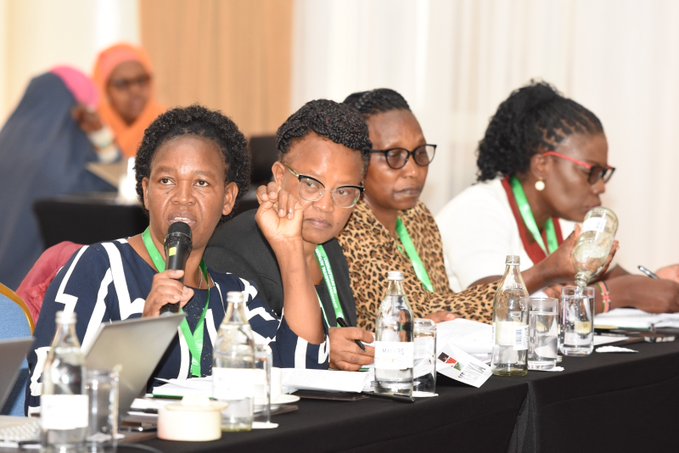The International Monetary Fund (IMF) has called for a review of the legal ambiguities and deficiencies within Uganda’s Anti-Money Laundering and Combating the Financing of Terrorism (AML/CFT) framework.
The IMF said barely a year after the delisting of Uganda off the Financial Action Task Force’s (FATF) Grey List. In February 2020, the country was blacklisted over deficiencies in anti-money laundering and counter-terrorism financing measures.
According to the Uganda Revenue Authority (URA), Uganda is a major transit route for the proceeds of money laundering from the mineral-rich countries of the Democratic Republic of Congo (DRC) and South Sudan because they lack money laundering legal frameworks to curb illicit finance flows and porous border points in those countries.
Last year, the Bank of Uganda petitioned the IMF requesting technical assistance in reviewing the legal and regulatory frameworks, developing operational frameworks for consistent sanction application, and implementing AML/CFT risk rating tools.
Following a four-day review, the Fund’s Capacity Development (CD) arm found that the coexistence of the Anti-Money Laundering Act and the Financial Institutions Regulations undermines the effectiveness of AML/CFT enforcement measures.
It also found that the Anti-Money Laundering (Amendment) Regulations 2023 had notable deficiencies, with monetary penalties not consistently aligned with the severity of the Anti-Money Laundering and Combating the Financing of Terrorism infractions, as recommended by Financial Action Task Force (FATF) standards.
“The memorandum of understanding (MoU) signed between the BoU and Financial Intelligence Authority (FIA) marked progress in AML/CFT oversight through improved dialogue and coordination,” Fund said in a report.
The Fund established that the anti-money laundering unit, which oversees AML/CFT compliance, was significantly understaffed with only four supervisory staff at the time of the mission. The range of entities supervised by the AML Unit includes commercial banks, credit institutions, microfinance deposit-taking institutions, money remitters, foreign exchange bureaus, and payment service providers/operations.
“Most of their AML/CFT supervisory activities were done manually, making them resource-heavy and time-consuming. In collaboration with the mission team, the AML Unit formulated risk-rating methodologies for the Forex Bureau and money remittance sectors. Despite successfully conducting a pilot test and gathering data from industry players, the data remained unanalysed due to limited supervisory resources,” the IMF said.
The Fund urged the central bank to strengthen information exchange mechanisms and designate contact persons for streamlined communication, bolster Uganda’s AML/CFT regulatory framework, enhance cooperation, and ensure robust enforcement to meet international standards.
They further implored the Bank of Uganda to enhance resources by investing in human capital and technological infrastructure for the AML Unit to be better equipped and more capable of effectively discharging their supervisory duties. The said bolstering is not a mere expansion but a strategic move to ensure that risk-based AML/CFT supervision is not just implementable but effective.
“The reallocation of qualified supervisory staff from the Non-Bank Financial Institutions Division and hiring specialised personnel in the AML unit are steps towards this goal. Adding four more supervisory staff members is recommended to address immediate requirements, but the BoU should determine the exact number based on its specific needs and circumstances,” the IMF said.





















